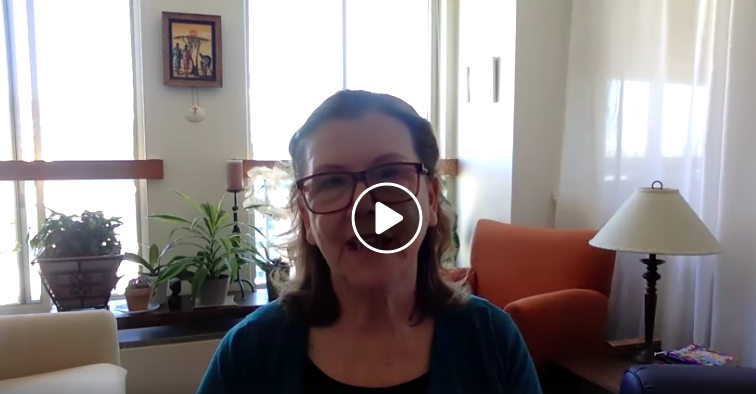“The future is so unclear in almost every aspect. But what is clear is that the future will not be business as usual. So what do we do know?”
This was the question posed by Mary Novak, associate director for Ignatian Formation at SCS and the Law Center, as part of her video reflection this week in Georgetown’s “Spiritual Continuity” series. Mary’s answer, drawing upon the universal richness of spiritual and religious traditions, is that only love grounded in inner resources can move us beyond the “destructive tendencies” of this perilous moment in history. The way we do this inner work, according to Mary, is to become “more fully human and to become more fully a human community” through an increase in spiritual practices, including fasting, praying, and engaging in some form of contemplation.

Mary Novak, associate director for Ignatian Formation at SCS and the Law School, delivered a “Spiritual Continuity” message on contemplation this week. Check out Mary’s video reflection by clicking on the image.
Mary then outlines an invitation to go deeper into contemplative practices by pointing to the particular resources within and across our spiritual traditions, reflected in the number of virtual programs for deep silence offered through Georgetown’s Office of Campus Ministry. It is important to point out, as Mary does, that growing contemplatively does not mean disengaging from the world or indulging in fantasy. Rather, contemplation, as explained by the Jesuit theologian Walter Burghardt, is a “long, loving look at the real.”
Contemplation invites us to encounter reality, engaging with both the sorrows (“I hate this pandemic”) and the potential possibilities (“I am called by this pandemic to ….”), in order to discover how we are being invited to greater love and greater community. In addition to the contemplative resources on the Campus Ministry website, we invite you to join our SCS Daily Digital Meditation at 12 pm each day of the work week (sign up here). Mary’s reflection inspires some important questions that I would invite us to consider this week:
- Do you engage in contemplation in some way? If you do not, but you would like to consider contemplative practices, what factors hold you back from engaging?
- Mary describes contemplation’s commitment to “deep listening.” What does it mean for you to engage in this kind of listening?
- Has this pandemic invited you to consider a new calling? Are you feeling motivated to do something for others – in your local community or the world beyond – because of this situation?
